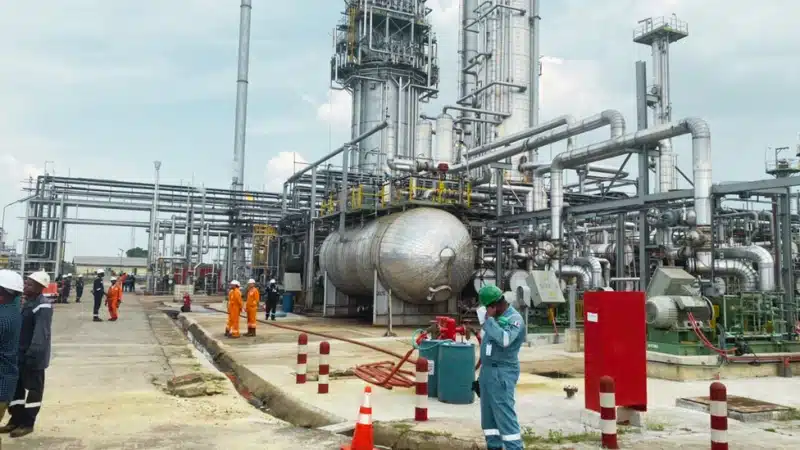The Managing Director and Chief Executive Officer of the Ogun-Osun River Basin Development Authority, Dr Adedeji Ashiru, disclosed on Wednesday that the Federal Government has finalised plans to construct seven dams in the six southwestern states for irrigation purposes and to enhance food production.
Ashiru also revealed that plans are ongoing to concession the hydropower-generating component of the Oyan Dam to boost the country’s power supply.
He said that the dam, which was installed with three turbines at its construction in 1979, is capable of generating nine megawatts of electricity.
Ashiru disclosed this while speaking on “Developing Strategies for Management of Ecological Challenges” at the 46th Annual Conference and Annual General Meeting of the Association for Consulting Engineering in Nigeria, held in Lagos.
The AGM and annual conference’s theme was “Sustainable Development: Building Resilient Cities.”
Ashiru stressed that dams play a major role in addressing ecological problems such as flooding, as they help control large surges of water that would otherwise escape downstream and cause havoc.
He stated that had it not been for the foresight that led to the construction of the Oyan Dam in 1979, some parts of Abeokuta and the entire Isheri area, among other communities, would have been submerged by floodwater by now.
In line with President Bola Tinubu’s agenda to boost food production and control flooding, the Federal Government has concluded plans to build seven dams for irrigation purposes and enhance food production in the Southwest.
Ashiru explained, “We are building seven dams in the Southwest, and the contracts should be awarded between now and Friday. These dams are primarily for irrigation purposes, in line with President Bola Tinubu’s agriculture agenda to enable all-year-round farming and boost food production.
“Each location of these dams will have 12 greenhouses and open fields for farming. We will also have storage houses to store the farm produce.”
He added that there are ongoing discussions about concessioning the dam for power generation, with talks currently taking place with investors, and hoped to complete the concession plans by next year.
Ashiru also mentioned that although the Oyan Dam, commissioned in 1979 with three turbines for generating nine megawatts of power, only operated for one hour after its commissioning, serious efforts are now underway to maximise its potential.
He urged the consulting engineers to always apply their expertise to construct buildings capable of coping with flooding and other effects of climate change.
Ashiru said, “The bedrock of engineering is design, and the primary responsibility of members of ACEN is to produce designs for engineering works. They should therefore incorporate green technology into their designs to help reduce the impact of global warming and climate change.”
The MD also advocated for stronger environmental regulations, capacity building for professionals in the engineering industry, as well as regular engagement and strong collaboration with stakeholders to achieve resilient cities.
Earlier, the President of the association, Kem-Selem Bukar, said that this year’s AGM theme was informed by various climatic challenges and ecological issues, particularly flooding, facing both the nation and the globe.
Bukar noted that at the end of the two-day conference, the association would propose plans to achieve resilient cities, with recommendations being channelled to the appropriate authorities.
Commenting on the frequent building collapses in the country, he said that as Chairman of the Engineering Regulatory, Monitoring and Enforcement Committee of the Council for Regulation of Engineering in Nigeria, 10 regulations had recently been developed to address the challenge of building collapse nationwide.
Bukar said, “In the past, the lack of enacted regulations hindered progress, but with the current leadership of COREN, we now have more than ten regulations that we can work with for a paradigm shift in engineering regulation.”
“In the near future, you will begin to see increased monitoring and enforcement in this area. We have issues of quackery and violation of engineering regulations, and we have found that those involved are not registered professionals. None of those investigated recently were registered members of associations like ACEN.”
Bukar stressed that with the new regulations signed into law, anyone found guilty of infractions will face penalties, including fines, imprisonment, or seizure of their licences.
He said it was worrying that the country experiences up to three building collapse incidents each week, but that efforts are ongoing to tackle sharp practices and substandard engineering processes.

 1 month ago
35
1 month ago
35















 English (US) ·
English (US) ·